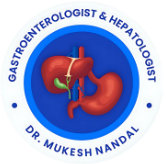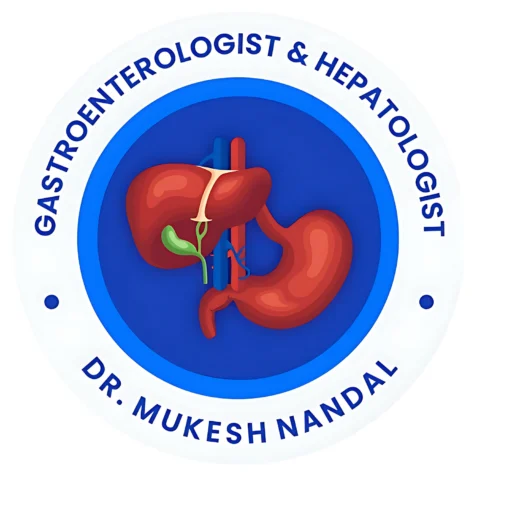Understanding Nonalcoholic Fatty Liver Disease (NAFLD): Causes, Symptoms & Treatment
Nonalcoholic Fatty Liver Disease (NAFLD) is rapidly emerging as one of the most common liver disorders worldwide, including in India. Surprisingly, even people who consume little or no alcohol can suffer from fatty liver – and this silent condition can gradually progress to serious liver damage if left untreated.
If you are looking for Fatty Liver Treatment in Gurgaon, understanding NAFLD is the first step toward protecting your liver health. As a liver specialist in Gurgaon, I aim to simplify this complex condition and guide patients on managing and reversing it with proper care.
What is NAFLD?
Nonalcoholic Fatty Liver Disease (NAFLD) refers to the accumulation of excess fat in the liver cells of people who drink little or no alcohol. A healthy liver contains some fat, but when more than 5–10% of the liver’s weight is fat, it’s diagnosed as a fatty liver.
NAFLD is broadly classified into two types:
- Simple Fatty Liver (Steatosis): Fat is present, but there’s little or no inflammation or liver damage.
- Nonalcoholic Steatohepatitis (NASH): A more severe form involving liver inflammation and damage. NASH can progress to cirrhosis or liver cancer.
Alarming Rise of NAFLD in India
India is witnessing an alarming increase in NAFLD due to rising obesity and sedentary lifestyles. According to the Indian National Association for the Study of the Liver (INASL):
- Nearly 25-30% of India’s urban population is affected by fatty liver disease.
- NAFLD is now the most common cause of chronic liver disease in India.
- Even children and lean individuals are being diagnosed due to unhealthy diets and insulin resistance.
This makes early detection and lifestyle correction more important than ever.
Common Symptoms of Fatty Liver Disease
NAFLD is often silent in its early stages, but some patients may experience:
- Fatigue or weakness
- Mild upper right abdominal discomfort
- Unexplained weight loss
- Enlarged liver (detected via imaging)
- Elevated liver enzymes in blood tests
As the condition worsens into NASH or cirrhosis, more serious symptoms like jaundice, swelling in legs, or confusion may develop.
What Causes NAFLD?
Several factors contribute to the development of NAFLD:
- Obesity or overweight (especially abdominal fat)
- Type 2 diabetes or insulin resistance
- High cholesterol or triglyceride levels
- Sedentary lifestyle
- Unhealthy diet – rich in sugar, refined carbs, and trans fats
- PCOS, hypothyroidism, or metabolic syndrome
Interestingly, some lean individuals also develop NAFLD due to poor dietary habits or genetic predisposition.
How is NAFLD Diagnosed?
If you suspect fatty liver, visit a liver specialist in Gurgaon for a detailed evaluation. Diagnosis typically includes:
- Liver Function Tests (LFTs): To detect elevated enzymes like ALT or AST
- Ultrasound Abdomen: To detect fat accumulation in the liver
- FibroScan or Elastography: A non-invasive test to assess liver stiffness or fibrosis
- MRI or CT Scan: In select cases to evaluate fat content and liver structure
- Liver Biopsy: Rarely required, but the gold standard to confirm NASH or advanced liver damage
Early diagnosis is crucial to prevent progression to liver failure or cancer.
Fatty Liver Treatment in Gurgaon: What You Need to Know
There is no magic pill for NAFLD, but the good news is – it is reversible with timely lifestyle changes. As a liver specialist in Gurgaon, follow a holistic and evidence-based approach:
1. Weight Loss
Losing 5–10% of body weight can significantly reduce liver fat and inflammation.
2. Healthy Diet Plan
Follow a balanced, low-calorie diet:
-
Include more fruits, vegetables, whole grains, and lean protein
-
Avoid sugary drinks, processed foods, fried items, and red meat
-
Opt for Mediterranean-style diets rich in olive oil, nuts, and fish
-
Control portion sizes and monitor caloric intake
3. Regular Physical Activity
Aim for at least 150–200 minutes of moderate exercise weekly – brisk walking, cycling, or yoga.
4. Control Metabolic Conditions
Manage diabetes, high cholesterol, and hypertension with medical guidance.
5. Medications (if needed)
Currently, no specific drug is approved for NAFLD, but your liver doctor may prescribe Vitamin E, insulin sensitizers, or other supportive medications based on your condition.
Disclaimer:
The information provided in this content is for educational and informational purposes only and is not intended to replace professional medical advice, diagnosis, or treatment. Always consult your doctor or a qualified healthcare professional with any questions you may have regarding a medical condition. Do not ignore or delay seeking medical advice based on something you have read here.


